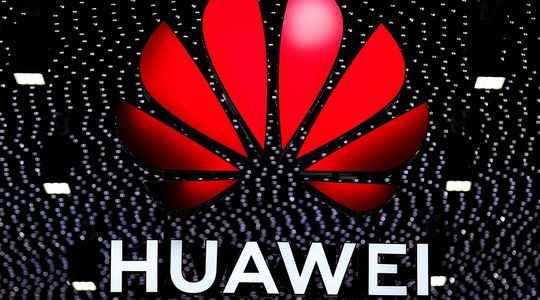After more than three years of procrastination, Canada has finally decided. Chinese telecommunications giants Huawei and ZTE are banned from the country’s 5G networks. The decision was taken following “a full review by our security agencies and in consultation with our closest allies”, said Minister of Industry François-Philippe Champagne on Thursday May 19 during a press conference. .
The long-awaited move was pushed back by the Canadian government due to diplomatic tensions between Ottawa and Beijing, following the 2018 arrest of Huawei chief financial officer Meng Wanzhou. According to the Canadian daily The Pressthe ban should have little effect on the main telecom operators in the country (Telus, Bell Canada and Rogers) who had anticipated this decision.
- The facts: Canada says no to Huawei
Ottawa ultimately concluded that Chinese OEMs posed a risk to the country’s national security. On Thursday May 18, the government of Justin Trudeau indicated that Huawei and ZTE will be banned from the deployment of the 5G network in the country. “This follows a full review by our security agencies and in consultation with our closest allies,” Industry Minister Francois-Philippe Champagne told a press conference quoted by AFP. . For the Canadian Minister of Public Safety, Marco Mendicino, 5G innovation “represents a major opportunity for competition and growth” but “also involves risks”. He added that there are “many hostile actors who are ready to exploit vulnerabilities” in telecommunications networks.
Beijing immediately condemned the “baseless” ban. “China firmly opposes” this decision, a spokesman for Chinese diplomacy, Wang Wenbin, told the press on Friday, May 20. He also assured that his country would take “all necessary measures” to protect Chinese companies. Without however specifying the outlines. The Chinese group, he deplores “a regrettable political decision” which cannot be justified by “reasons of cybersecurity”. “Huawei equipment, including hardware and software, has been regularly and closely reviewed by the government and its security agencies under strict quality standards,” the telecoms group added.
For its part, Washington “welcomed” this decision. “The United States supports efforts to ensure that countries, businesses, and citizens can trust their wireless networks and carriers. We continue to work with allies like Canada to ensure our shared security,” declared in particular a spokesman for American diplomacy.
- The context: the United States fears data espionage
Canada already banned Huawei from participating in government tenders for basic network equipment, such as routers. The United States is leading the campaign against Huawei, with the spectacular banishment of the Chinese group by US President Donald Trump in May 2019.
For several years, the US government, which no longer has a major telecom equipment manufacturer in mobile networks, has been working with its allies – including Canada – to prevent Huawei from integrating the 5G networks of these countries. US intelligence services are particularly concerned that Huawei will allow Chinese authorities to use its equipment to monitor communications and data traffic. The United Kingdom, Japan, Australia and Sweden had thus followed in the footsteps of the United States. For its part, Huawei assured that it would refuse any such request.
- Why it matters: Risk of a new diplomatic crisis between Ottawa and Beijing
Only Canada had not yet ruled. In question: its already very sour relations with China since the arrest, in Vancouver, in 2018, of Meng Wanzhou, the financial director of Huawei, targeted by an American warrant. Washington accused the one who is also the daughter of the founder of the Chinese telecom juggernaut of having lied to circumvent American sanctions against Iran.
This arrest marked the beginning of a major crisis between Ottawa and Beijing, also called “hostage diplomacy”. A few days later, China in turn arrested two Canadians and accused them of espionage. The measure was widely seen as a retaliation.
At the end of September 2021, Chinese leader Meng Wanzhou was finally released. Ditto for the two Canadians. But since then, relations between the two countries had never really warmed up. Ironically, only two days before the announcement of Huawei’s exclusion from its 5G network, Canada was delighted that China was lifting restrictions on Canadian imports of canola (a variety of rapeseed grown in Canada) , put in place following the diplomatic dispute between the two countries.
